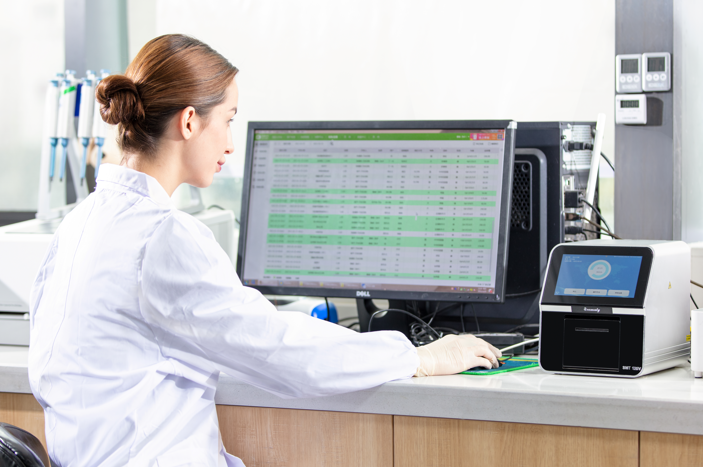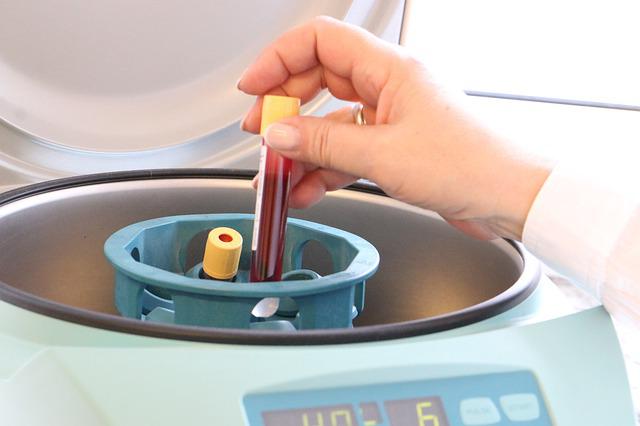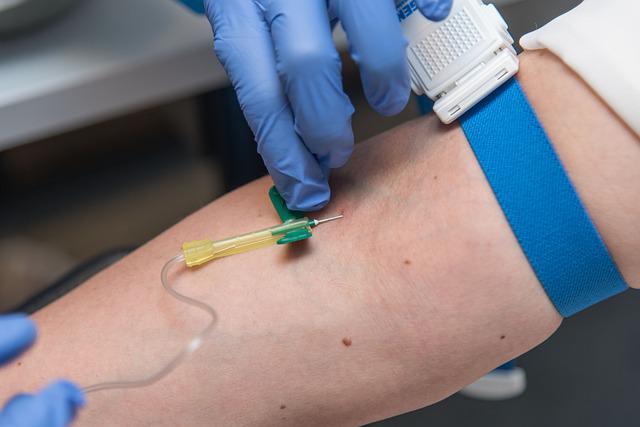1. The meaning of biochemistry analyser calibration
This absorbance means nothing to us. We have to convert this absorbance into a concentration or enzyme activity. Then we have to multiply it by a K value. The K value is what we find by calibrating. The general minimum requirement is to have a reagent blank and a standard, after the instrument has determined two absorbances.
K = (standard concentration - reagent blank) / (A standard - A reagent blank)
(the reagent blank is usually 0)
The concentration of the standard is known to us. These two absorbances can be measured by the biochemistry machine. This gives a K value. Whatever the specimen, multiplying its absorbance by the K value gives us the answer. The K value is therefore very decisive and can determine the accuracy of a specimen.
2. biochemistry machine K-value determinants
Let's look at what affects the K-value. Firstly, the concentration of the standard solution must be accurate (it is best to use the same serum as the specimen). Secondly, the absorbance of the standard must be accurate in relation to the absorbance of the reagent blank. The absorbance is influenced by the condition of the biochemistry machine and the condition of the reagents. If your biochemistry machine is stable, the reagents are a major factor in the K-value.
3. How can I be sure that the biochemical analyzer K-value is correct?
We generally check this with a QC serum. It is best to have two levels of QC sera to check. If the QC results are good, it can be said that the K value is accurate. The patient's result calculated using this K value is also accurate, so the K value is very critical.
4. The true nature of the biochemical analyzer K-value
The K value actually represents the slope and the intercept represents the reagent blank, which changes every day. If the biochemistry machine and reagents are stable, then the K value is also stable.
5. How often is the calibration appropriate?
This depends on the stability of the reagents. If the quality control results are not good, some projects can be solved by doing a reagent blank, while some projects need to do two-point calibration.
6. Does a daily calibration guarantee stable biochemistry machine results?
Not necessarily, the calibration may not be freshly dissolved every day. Some items are not stable after re-dissolution of the calibration solution, such as TBIL, DBIL (decomposition by light), GLU (bacterial decomposition) and enzyme items (degradation by re-dissolution after freezing). Solution: The above items must be freshly dissolved in a bottle of calibrator when calibrating, at least for 30 minutes, and measured within 1 hour.
The above is the problem related to the calibration of the biochemical analyzer. I hope you find it helpful.



